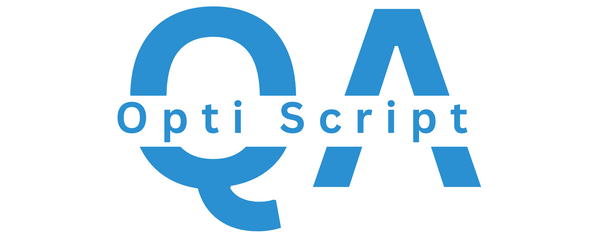In 2024, many businesses are embracing open source test automation frameworks to streamline their software testing processes. These frameworks offer numerous benefits, from cost savings to flexibility, making them an attractive option for companies of all sizes. But what exactly are open source test automation frameworks, and why should your business consider using them? This blog will explore the key reasons why open source test automation tools are worth considering for your organisation.
What is an Open Source Test Automation Framework?
An open source test automation framework is a software platform designed to automate the testing of applications. Unlike proprietary software, open source tools are developed by a community of developers and are available for anyone to use, modify, and distribute freely. These tools allow businesses to automate the testing of their software to ensure its quality, reliability, and performance across different platforms and devices.
Why Choose Open Source Test Automation Frameworks?
1. Cost Efficiency
One of the most compelling reasons to choose open source test automation frameworks is the cost savings. Unlike commercial tools, open source frameworks are free to use, which can significantly reduce expenses, especially for smaller businesses or startups. The lack of licensing fees means you can allocate your budget elsewhere, such as hiring skilled testers or improving your overall testing infrastructure. For businesses that need robust testing solutions without breaking the bank, open source is a perfect fit.
2. Community Support and Continuous Improvement
Open source frameworks benefit from a vast community of developers and users who contribute to the ongoing development and improvement of these tools. Bugs are fixed quickly, new features are introduced regularly, and documentation is continually updated. For businesses, this means you’re not dependent on a single vendor for updates or bug fixes. Instead, the open source community provides continuous support and innovation, keeping the tools relevant and up-to-date with the latest technologies.
3. Flexibility and Customisation
Open source frameworks offer greater flexibility than many commercial alternatives. Since the source code is freely available, businesses can modify and customise the tool to fit their specific needs. This is particularly beneficial for companies with unique testing requirements or those working in niche industries. You’re not limited by the out-of-the-box features of a proprietary tool—you can tailor the framework to your exact specifications, making it a more effective tool for your team.
4. Vendor Independence
When you choose a proprietary testing tool, you're often tied to that vendor for updates, support, and enhancements. This can create dependency and restrict your ability to innovate or switch tools easily. With open source frameworks, you avoid this vendor lock-in. Your business remains independent, and you can switch between tools or even combine multiple open source solutions without being restricted by a specific vendor's ecosystem.
5. Integration with Modern Development Tools
Modern software development practices like Continuous Integration/Continuous Deployment (CI/CD) rely heavily on automated testing. Open source frameworks are built to integrate seamlessly with popular CI/CD tools, version control systems, and other modern development environments. For businesses, this means faster development cycles and smoother workflows, allowing your team to deliver high-quality software at a faster pace. Open source frameworks can be adapted to work with the tools you’re already using, making them an integral part of a modern software development pipeline.
6. Scalability
As your business grows, so do your testing needs. Open source frameworks are highly scalable, allowing your test automation efforts to expand alongside your business. Whether you're running tests on a few small projects or scaling up to handle large, complex applications with hundreds of test cases, open source frameworks can be adapted to meet your needs. This scalability ensures that your investment in an open source tool continues to pay off as your company and projects grow.
7. Security and Transparency
With open source frameworks, the source code is fully transparent, meaning that businesses can inspect the code for security vulnerabilities or compliance issues. This level of transparency provides greater assurance that the tools you’re using meet the security standards required by your business or industry regulations. Additionally, the large community behind open source projects often identifies and addresses security issues faster than in closed-source, proprietary tools.
Conclusion
Open source test automation frameworks offer a powerful combination of cost savings, flexibility, scalability, and vendor independence that make them an attractive option for businesses in 2024. Whether you're a small startup looking to implement affordable automated testing or a larger organisation seeking greater control over your testing tools, open source frameworks provide the flexibility and support needed to meet your testing goals.
By choosing open source, you not only save on costs but also gain access to a vibrant community of developers and users that can help your business stay ahead in an ever-evolving digital landscape. With continuous improvements, customisation options, and seamless integration into modern development workflows, open source frameworks are a smart choice for any business aiming to deliver high-quality software efficiently.

